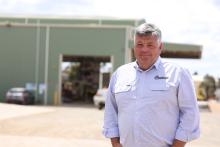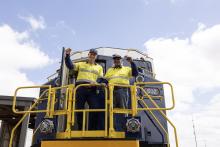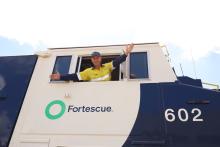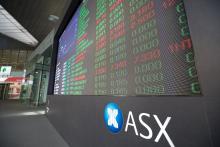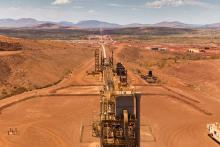Mining software provider K2fly has reported revenue of $5.4m for the second half of 2022 – a 19 per cent rise on the company’s revenue for the same period in 2021. The company has products at work in 62 countries and regards its revenue growth as testament to the success of its strategy of focusing on Tier 1 and 2 global mining companies.


Mining software provider K2fly has reported revenue of $5.4m for the second half of calendar year 2022 – a 19 per cent rise on the company’s revenue for the same period in 2021.
Last year’s strong second half, which K2fly categorises as the first half of financial year 2023, comes on the back of a bumper last three months of the year when the company snared a swag of mining heavyweights. The Subiaco-based company signed contracts with Rio Tinto, Mineral Resources, ArcelorMittal Mining and Anglo American, helping K2fly to achieve record high sales for the December quarter – 33 per cent up on the same period the previous year.
K2fly’s products focus on the environment, sustainability and governance, or “ESG” space with the aim of providing assurance and accountability to its clients in their stewardship and management of natural resources. The provider’s suite of software as a service, or “SaaS” covers such areas as land access, ground disturbance, tailings management, heritage management and mine rehabilitation.
Thus, the company has been able to capitalise the attention from the global investment market and wider society on ethical corporate practice and responsiveness to environmental and social issues.
Significantly, K2fly’s SaaS services are billed annually in advance in a metric the company terms annually recurring revenue, or “ARR” and which constitutes one of its two key financial metrics.
ARR grew in the second half of 2022 by 44 per cent to $6.9 million and K2fly regards the achievement as testament to the success of its strategy to focus on Tier 1 and 2 global mining companies.
Its second key metric is total contract value, or “TCV” which is the aggregate of contract liabilities, future licence fees and unbilled one-off implementation fees. That metric grew by 17 per cent in comparison to the same period in 2021.
However, with revenues growing K2fly’s cost of sales also increased. The company attributes this to the increased number of in-flight implementation projects and growing client base and the need to grow the overall service capacity of the business in advance of delivery.
Management notes that other costs grew by only a modest 3 per cent, despite an increase of almost 50 per cent in depreciation and amortisation charges. The company puts this down to a function of diligent cost management in a highly inflationary environment.
With a strong resources sector and growing ESG awareness delivering tailwinds while inflation and worldwide staffing shortages provide countering headwinds, investors will watch keenly this year to see how companies like K2fly navigate any potential turbulence ahead.
Is your ASX-listed company doing something interesting? Contact: matt.birney@businessnews.com.au





